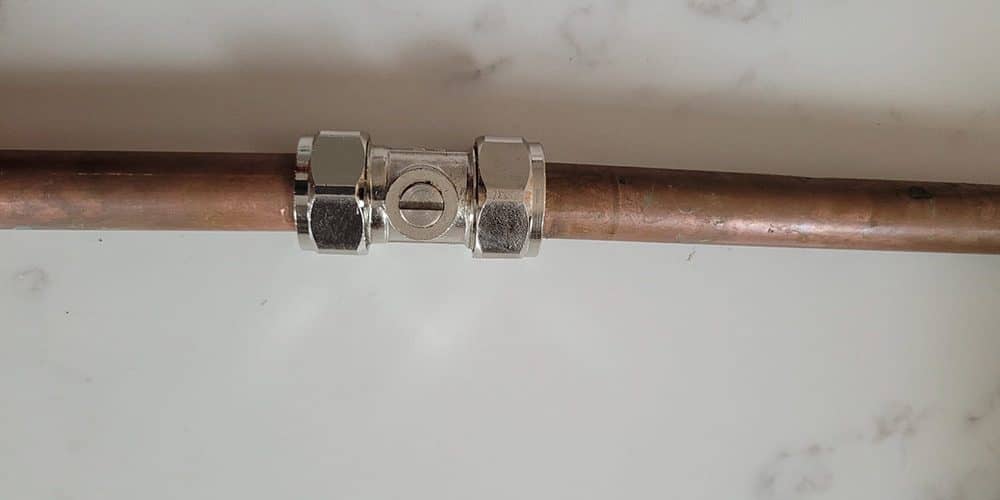A tap that won't turn off is more than a minor annoyance. It's a potential plumbing emergency. Whether your bathroom tap keeps running, your tap handle won't budge, or you hear the steady drip of a leaking tap that refuses to stop, it's essential to act quickly. Left unresolved, this issue can lead to high water bills, water damage, and wasted resources.
In this guide, we'll walk you through why this happens, what steps you can take in an emergency, and when it's time to call in the professionals.
If you're currently facing this issue, don't panic. Maintracts offers fast and reliable emergency plumbing repairs across London. Our experienced engineers will have your water back under control in no time. Contact us now for expert tap repair. Contact us on 020 8131 9985 or email info@maintracts.co.uk for expert advice and assistance.
A stuck tap is more than an inconvenience—it's your plumbing system asking for attention. Acting quickly can prevent bigger, costlier issues down the line.
Why Taps Get Stuck Or Keep Running
A tap stuck open or a dripping tap that won't shut off usually stems from internal wear or mineral buildup. Common causes of a dripping tap include:
- Tap valve not working correctly: Over time, valves can corrode or seize up, preventing complete shut-off.
- Worn compression washer or ceramic disc: A damaged compression washer or ceramic disc tap seal can cause the tap to run constantly.
- Faulty tap cartridge: In a mixer or monobloc tap, the tap cartridge may need to be replaced.
- Debris: Sediment or mineral deposits can jam components inside the tap.
- Loose or broken internal parts: The internal spindle or gland might be cracked or misaligned.
Regardless of the root cause, the result is the same: you can't turn the tap off entirely, and water continues to flow or drip.
Emergency Fix For A Tap That Won't Turn Off
If you're in a bind, here's a quick step-by-step on how to stop the water temporarily:
- Turn off the water supply: Locate your stopcock or water isolation valve, typically located underneath the sink. Turn it clockwise to stop the water.
- Release residual pressure: Open other taps in your home to drain excess water and reduce pressure in the pipes.
- Attempt gentle tap handle movement: If your tap handle won't budge, avoid forcing it. It could break and make things worse.
- Try tightening the gland nut: This might offer a temporary fix until professional help arrives.
While these steps can provide a temporary solution, they do not address the underlying problem. That's where professional help comes in.
Common Tap Parts That Fail
Here are some components that often need repair or replacement when a tap fails:
- Tap valve: Controls water flow—prone to scale buildup and corrosion.
- Tap cartridge: Found in mixer taps, responsible for blending hot and cold water.
- Compression washer: Seals the valve; often worn out in traditional taps.
- Ceramic disc: Used in modern taps; can crack or wear over time.
- Gland nut: Holds tap internals in place—may loosen or break.
Understanding these parts helps you better comprehend the issue and communicate more effectively with your plumber.
DIY Vs Professional Plumbing Repairs
You may be tempted to attempt a repair yourself. While some confident DIYers can replace a washer or tap cartridge, it's essential to assess the risk of DIY and professional plumbing repairs:
- If you're unfamiliar with your plumbing system
- If you can't identify the type of tap or the internal mechanism
- If your tap won't turn off entirely, even after a part replacement
It is time to call in a professional. Attempting repairs without the right tools or knowledge can lead to leaks, flooding, or even more expensive damage.
Call Maintracts Plumbing Services For Quick Repairs
If you're dealing with a plumbing emergency or your tap is dripping and won't shut off, Maintracts is ready to help. With decades of experience and a fast-response plumbing team, we provide:
- Emergency fix for taps that won't turn off
- Complete dripping tap repair and part replacement
- Expert diagnosis of hidden plumbing issues
- Transparent pricing with no hidden charges
Whether it's a garden tap not working or a kitchen mixer stuck open, we'll handle it with professionalism and care.
Need urgent help? Contact us on 020 8131 9985 or email info@maintracts.co.uk for expert advice and assistance.
FAQs
Why won't my tap turn off completely?
Typically, it is due to worn internal parts, such as washers, valves, or cartridges, that no longer seal properly.
What causes a tap to keep running even when turned off?
Corrosion, scale buildup, or faulty internal mechanisms, such as a damaged compression washer or cartridge.
Can a worn-out washer cause a tap to stay on?
Yes, a deteriorated washer can't entirely block water flow, leading to a continuous drip or run.
Is it safe to use a tap that won't turn off?
No. It can lead to water waste, higher bills, and potential water damage.
How can I temporarily stop a tap that won't shut off?
Turn off the stopcock or isolation valve to cut the water supply. Then call a plumber.
Should I turn off the water supply if my tap won't turn off?
Absolutely. This will prevent water wastage and avoid further damage.
Can Maintracts fix a tap that won't turn off?
Yes, our experienced plumbers can diagnose and fix all types of tap issues quickly and efficiently.
Do I need to replace the whole tap if it won't turn off?
Not always. In many cases, a simple washer replacement or tap valve repair can solve the issue.

